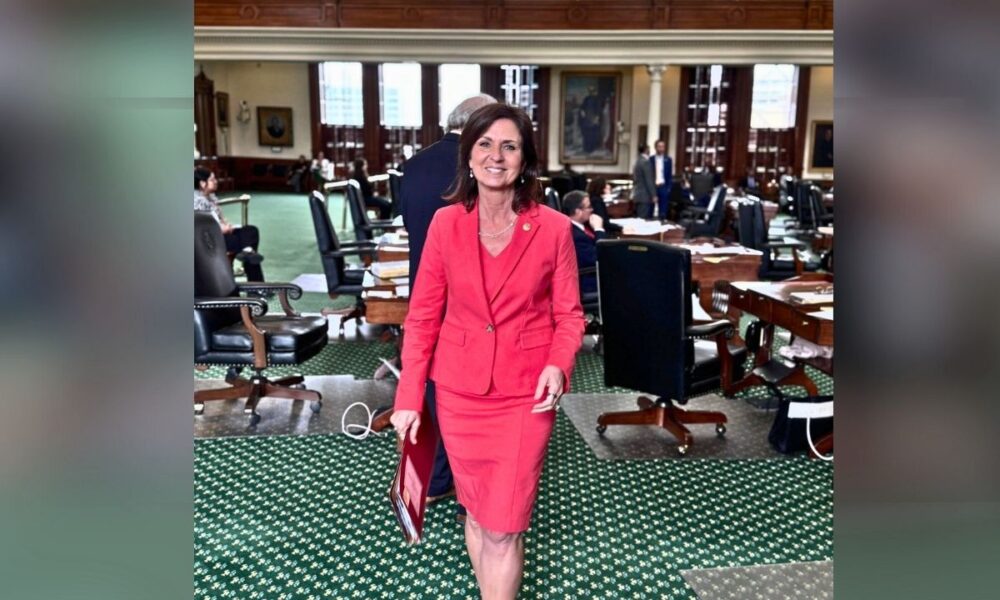“WE DID IT,” Texas State Sen. Angela Paxton posted Tuesday, celebrating a major defeat for Big Tech and a surprise rebuke to a signature proposal from President Donald Trump.
WE DID IT 🎉
Overnight the Senate voted 99-1 to remove the AI moratorium provision from the #OBBB!
This is a major victory for states, like Texas, to be able to protect children from AI abuse. Thank you to the advocates and lawmakers that stood up to #BigTech and worked… https://t.co/G4Jhs6lwK3
— Senator Angela Paxton (@AngelaPaxtonTX) July 1, 2025
Paxton’s post came after an all-night vote-a-rama on Capitol Hill, where senators stripped language from the “One Big Beautiful Bill” (OBBB) that would have effectively restricted state and local governments from enforcing or passing new laws regulating artificial intelligence for the next decade. A resounding 99-1 vote defeated the proposal initially pushed by U.S. Sen. Ted Cruz (R-Texas). The lone dissenter was Sen. Thom Tillis (R-N.C.), who is not seeking reelection.
The reversal capped a dramatic 24-hour stretch that saw Republicans splinter over the issue. Cruz ultimately joined longtime ally Sen. Marsha Blackburn (R-Tenn.) in voting to kill the very provision he had helped negotiate.
Blackburn, who led opposition to the moratorium, introduced the amendment to strike it after sustained pressure from state officials, child safety groups, labor unions, and populists. One key voice was Paxton, who had urged both Cruz and U.S. Sen. John Cornyn (R-Texas) to oppose the moratorium just one day prior.
“If the OBBB passes with the AI moratorium in place, our important work on preventing child pornography, protecting data privacy, preventing discrimination, and holding Big Tech accountable in Texas will be rendered moot,” she warned in a letter posted online, The Dallas Express reported.
The moratorium would have frozen state AI laws in exchange for access to certain federal broadband and tech funds. Supporters, including Commerce Secretary Howard Lutnick and major trade associations, claimed the plan would streamline innovation and avoid a chaotic patchwork of 50 different state rules.
However, critics on both the left and right argued that it would gut states’ ability to respond to rapidly evolving AI harms. “By preventing states from legislating on an issue that will have a rapid and unprecedented impact … Congress would be trampling on states rights,” Paxton wrote, invoking the Tenth Amendment.
Her advocacy drew added attention given that her husband, Texas Attorney General Ken Paxton, is running to unseat Cornyn in 2026. Though she did not mention the race, her letter placed her in open opposition to both Cornyn and Cruz.
The backlash to the AI moratorium spanned ideological lines. Teamsters President Sean M. O’Brien called it “a disaster for communities and working people.”
A compromise version—shortening the moratorium to five years and carving out exceptions for child safety laws—briefly emerged Sunday but collapsed within 24 hours. Blackburn withdrew her support late Monday, declaring, “The current language is not acceptable to those who need these protections the most.”
The moratorium’s defeat was a rare win for state regulators, parents’ groups, and populists, who saw it as a backroom favor to Silicon Valley.
“Google and Meta had AI amnesty in the bag yesterday at 10 a.m.,” said Mike Davis, founder of the Article III Project, per The Washington Post. “Then the Article III Project and Steve Bannon’s War Room sprang into action. … We are pleased 99 senators finally decided to side with kids and content creators over AI amnesty and Big Tech profits.”


